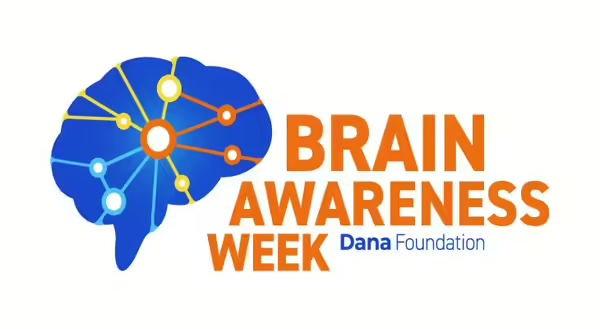
Brain Awareness Week is the global campaign to foster public enthusiasm and support for brain science. BAW was founded by the Dana Alliance for Brain Initiatives and the European Dana Alliance for the Brain, and is coordinated by the Dana Foundation. This is the 27th annual BAW which will be observed March 14-20 in 2022.
Research shows that lifestyle factors like sleep quality, a nutritious diet, physical exercise, decreased stress and intellectual challenge all contribute to optimal brain health. But just as important, social interactions and emotional support also enhance brain functioning.
As someone who facilitates brain health classes, the biggest concern I hear from participants is about memory. They wonder why they can’t remember people’s names, where they place things, and what they were going to do next!
This is a common complaint for those of all ages and many times can be attributed to distraction and not paying close enough attention. There are also many other factors that can affect memory, such as stress, medications, physical illness, sleep deprivation or dehydration.
I always recommend that if memory lapses are concerning, they should consult with their health care professional to rule out some of these common culprits and to catch anything easily diagnosable and curable. It goes a long way for peace of mind as well.
I would like to share a few simple strategies that can help us improve our memory and ability to learn:
- Relax: Tension makes memory lapses more likely. Reducing stress improves learning and recall.
- Slow down, pay attention, and stay focused: If you want to recall something later, pay close attention to it now. Concentrate on what you’re doing and reduce distractions and interruptions. Don’t rush—focus and attention take time.
- Repeat it: Repetition strengthens connections in your brain.
- Write it down: Putting important information in writing both repeats it and provides a visual reminder. Carry a notepad, calendar, or use your smartphone.
- Visualize: Creating an image of what you want to remember improves recall by giving your brain another way to access the information.
- Make associations: Relate new experiences and information to what you already know, to embed it in existing synaptic connections. This strategy can be useful in remembering names: at a dinner party, you might associate “Pam” with “red dress” and “red wine.”
- Stay organized: Keep things you regularly use in the same place: put keys on a hook by the door, your wallet in a basket on your dresser.
- Plan and prioritize: Because multitasking may be more difficult as we age, planning becomes critical. Prioritize: some things will simply have to wait.
These tips come from the Dana Foundation publication Successful Aging & Your Brain The Dana Foundation is committed to advancing brain research and to educating the public about brain health. Its website can be found at www.dana.org and is a great resource for information and activities on neuroscience and brain health. And remember, don’t just focus on your brain health only during BAW, but look for opportunities all year long!